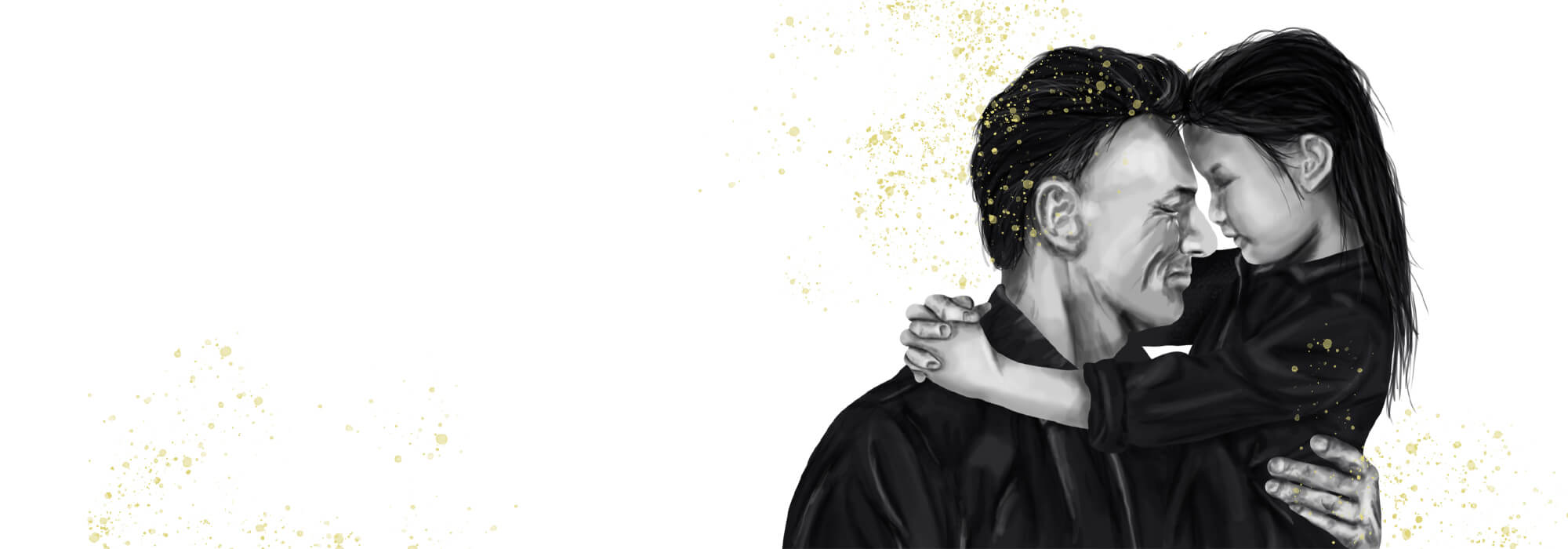Act: II
The Hardest Choice
Topic:
The choice to sexually abuse a child is a gradual process. Most people who abuse a child do not just wake up one day and decide to sexually abuse a child. There are so many similarities in the persons that sexually abuse children that if we can get this information to those who might have the propensity to abuse a child, we might be able to save a child and the person who might abuse them. This, to me who has abused his own children, seems like a far better thing than to have to deal with the aftermath of the sexual abuse of a child. This is a soliloquy as it is about the factors leading up to a choice.

Characters:
Man 1
Little girl
Scene:
Man 1 is sitting in a darkened room. The room is in disarray and shows the chaos of his mind. Sitting at a desk where there is a picture of his family that can be seen in the camera. Could be a video of family playing on the computer. Man looks haggard and distressed and looks to have possibly been crying.
Man 1:
(Looking at the picture of his family or the video, which includes his child.) Why am I thinking like this? I should not be even thinking this. I cannot do this to my beautiful little girl. I’d rather die.
(scene fades out then back in and we get the impression that time has went by. Not sure if it is minutes, hours, or days.)
Man 1:
I have to stop thinking this. I should not even contemplate it. No one else thinks this way; why am I thinking this way? Please God help me.
(scene fades out then back in and again we feel time has passed even though nothing has changed.)
Man 1:
I can’t go to anyone about this. Who will ever understand that I am having these thoughts and feelings? No one will ever understand. They will hate me and try to make it seem that I am a monster. I should just die. That would solve everything. (Man 1 puts his head down and begins to cry.)
(The room door opens and light fills the room.)
Little Girl:
Daddy! (then she notices that he looks sad) What’s wrong Daddy? Are you okay?
(We hear foot steps running and a form rushes into Man 1’s arms.)
Little Girl:
I love you Daddy. What’s wrong? (Her voice becomes soothing) It will be okay Daddy. What’s the matter Daddy?
(Tears flow from Man l’s eyes as he strokes his daughter’s head.)
Man 1:
I am lost.
(scene fades)
Closing:
(as scene fades out a voce begins with words coming up.)
Narrator:
There are many common factors that link people who commit the crime of the sexual abuse of a child. Some of the most common are:
1) More than likely (95%) they have been abused as a child. This is not a way to take away blame; this is a fact and should be considered;
2) Most (90%) have some other underlying psychological disorder; and
3) almost all feel that they have no where to go. They do not have the knowledge necessary to know that there are places out there that can help them, that are willing to do so without judgment. They fail to understand that they are not alone, that what they feel or think is not unique. It is that feeling of isolation, of no where to turn to that drives someone who might offend into the darker places that means they will offend. Because while someone who is in the dark place will probably re-offend; someone who has brought their issue into the light, will have found the will and support to do what it takes to not offend or re-offend. These are facts.
We must educate people. We must be able to discuss this without aggression toward the persons who have or might offend. This is not about lessening accountability; this is about stopping this problem. This is about saving a child from ever having to deal with this.
There are many resources for someone who might offend. Education in these resources should be given to anyone who meets the factors that indicate a possibility of offending.
Resources:
Although this consists of very few words, its meaning and intent are apparent, too much more would take away from what I am trying to convey. The salient facts are that most people who offend realize that what they are doing is wrong and would seek help if they felt like they had somewhere to turn. I speak this from my own experience and what I have seen of others who have sexually abused a child.